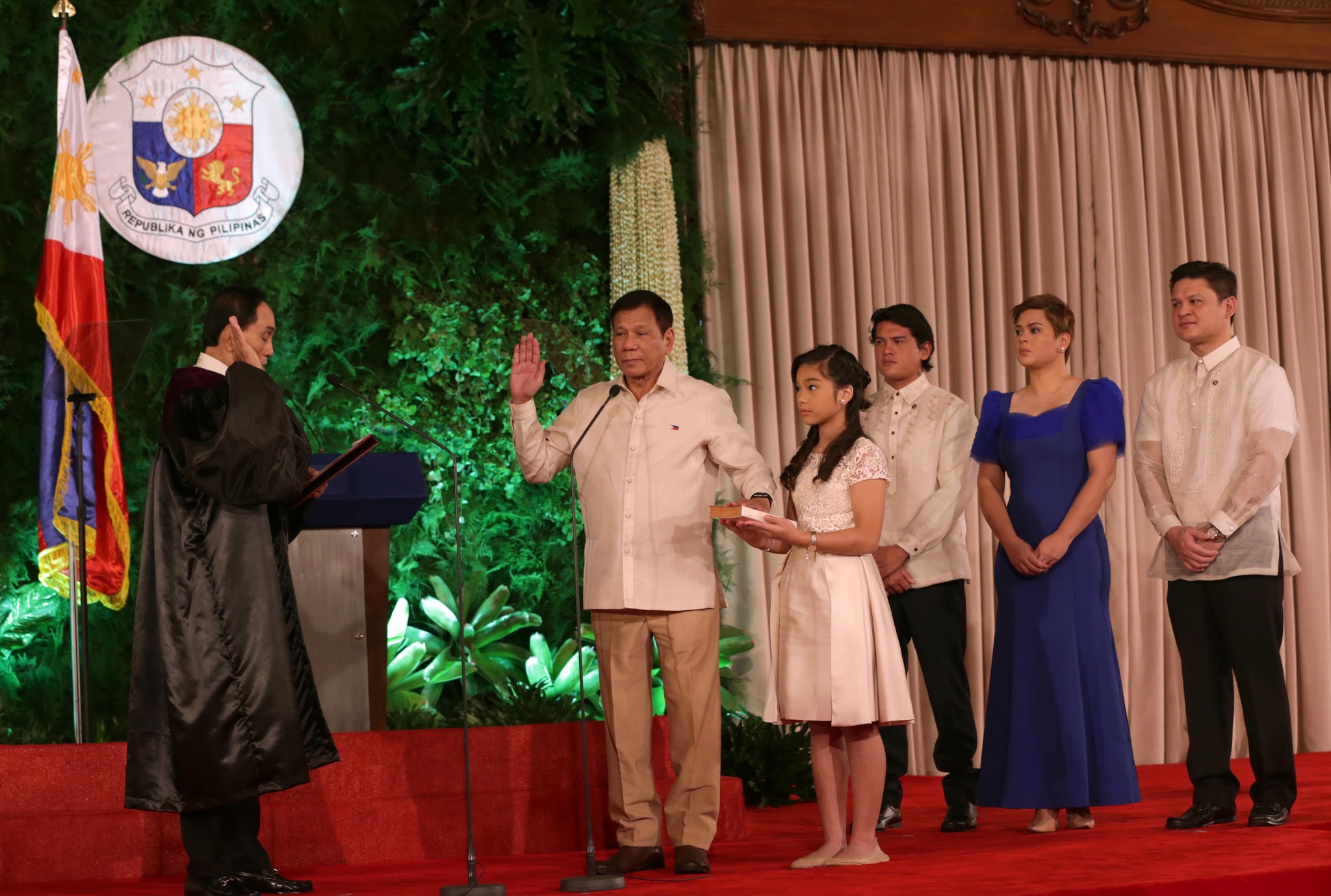ETHAN PETNO examines a shifting balance of power in the South China Sea amidst the Hague’s July 12th ruling rejecting China’s territorial claim and the rise of Filipino President Rodrigo Duterte.

On July 12th, The Hague rejected China’s claim of “historic rights” to the majority of the South China Sea. It lambasted China for causing “irreparable harm to the environment around the islands” and for violating international law with its provocative behavior. The ruling was a sweeping victory for the Philippines, which brought the case against China in 2014. Yet puzzlingly, since the ruling, Filipino President Rodrigo Duterte has tightened ties with China and called its seventy-year relationship with the United States into question.
The sudden change in Filipino policy reflects a change in public opinion. According to a Pew Research Center poll, 92 percent of Filipinos held a favorable attitude towards the United States as recently as 2015. Yet Duterte rode a wave of anti-American populism to the election in May 2016. Now, 76 percent of Filipinos say they are satisfied with him even amidst his increasingly anti-U.S. rhetoric, according to a Social Weather Stations poll taken in September.
While China vigorously denied the legitimacy of the Hague ruling, claiming it to be the product of a rigged international order, it did cause changes to China’s official position regarding the contested territory. While China still claims all within the “Nine-Dash Line,” a territory marker printed on a 1947 Republic of China map, China has given up its claim to some oil and gas stores and now claims less restrictive fishing rights than it once did.
Chinese citizens and scholars have criticized the Chinese government for not taking a stronger stance on the South China Sea. According to Jessica Chen Weiss, associate professor of government at Cornell University, Chinese President Xi Jinping’s government has sought to quash hyper-nationalistic sentiment over the South China Sea. Moreover, China’s caution since the ruling reflects the reality that it now, with a ruling handed down, must negotiating from a position of weakness. According to Orville Schell, the Arthur Ross Director of the Center on U.S.-China Relations at the Asia Society, China must either seek accommodation with the other claimants to the area or double down and continue to act in defiance of a settled piece of law. China’s response immediately after the ruling would suggest an intent to protect its international standing. Yet there is another reason for China’s reluctance to take a stronger stance.
President Duterte’s anti-American vitriol may have convinced some Chinese officials who would otherwise have pushed for a more aggressive approach that they have a new option. President Xi Jinping now can negotiate on more favorable terms with the current Philippines administration than would have been possible with a different leader. President Duterte offers China an opportunity to drive a wedge between the United States and one of its most critical regional allies. The balance of power shift, it seems clear, is more important than a small base on a vulnerable island.
The United States’ diplomatic response has been limited by its reluctance to engage with a leader who has killed more than 2,400 people in his war on drugs, according to Time Magazine, many of them extra-judicially. Duterte’s rhetoric has only continued to escalate and he has begun to make substantive threats: he recently threatened to start buying weapons from China and Russia instead of the United States.
The Philippines currently stands in a position of relative strength. While its international standing has been weakened by government-approved vigilante killings, the United States is unwilling to sever ties with its longtime ally and China is behaving much more amicably than it has over the past few years. President Duterte, for all his bluster, might actually be engaging in extremely clever diplomacy, though only time will tell what the outcome will be.
Ethan Petno is a sophomore at Princeton University. Contact him at epetno@princeton.edu.

